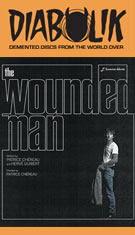
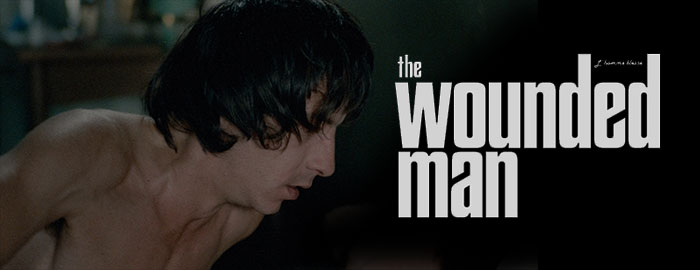
Color,
1983, 110 mins. 30 secs.
Directed by Patrice Chereau
Starring Jean-Hugues Anglade, Vittorio Mezzogiorno, Roland Bertin, Lisa Kreuzer, Claude Berri, Hammou Graïa, Armin Mueller-Stahl
Altered Innocence (Blu-ray) (US RA HD), Studiocanal (DVD) (France R2 PAL) / WS (1.66:1) (16:9), Cinevista (DVD) (US R0 NTSC) / WS (1.66:1)
Best known 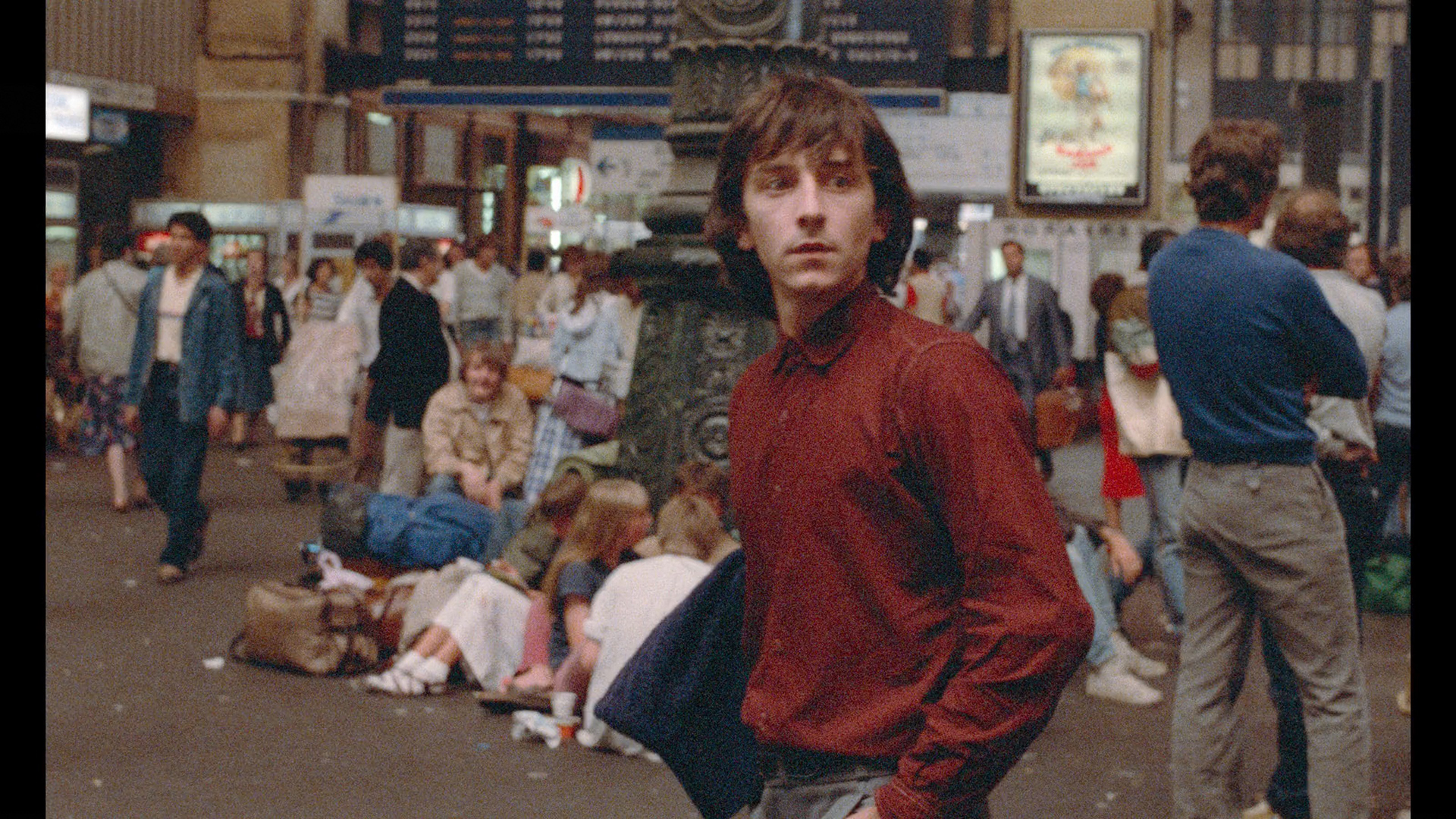 internationally as the director of Queen Margot and the notorious Intimacy (as well as for
internationally as the director of Queen Margot and the notorious Intimacy (as well as for 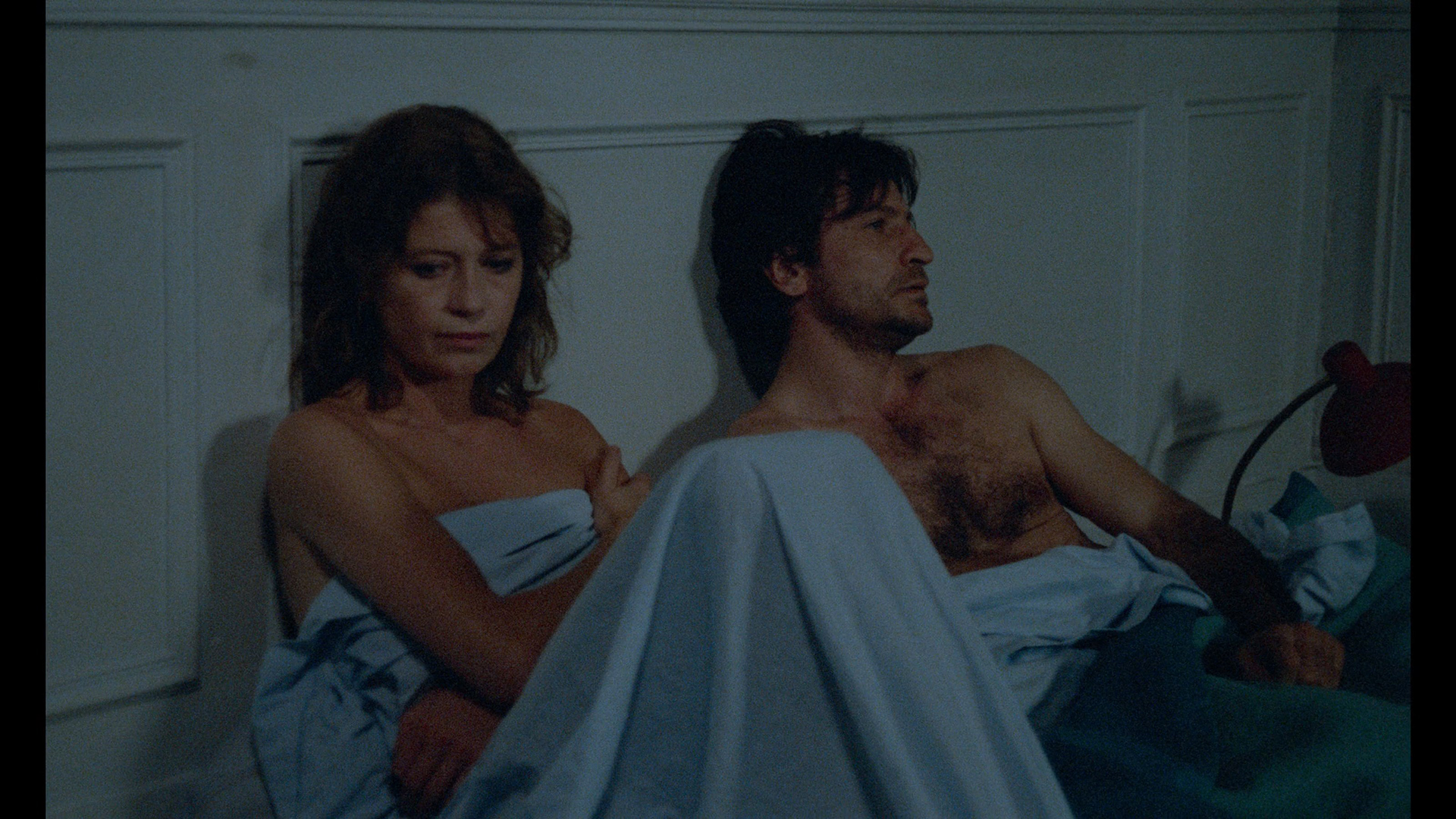 his landmark staging of operas like Wagner's Ring Cycle), filmmaker Patrice Chereau was already stirring up controversy early in his career with his third feature film, L'homme blessé (or The Wounded Man). Mixing sexual obsession with a gritty depiction of street hustling in France, the film came along in the wake of envelope-pushing European provocations like Querelle and Taxi Zum Klo, generating much local chatter for depicting a lifestyle normally not shown so frankly in a mainstream prestige release. Since then the film has solidified its status as one of Chereau's most important films as well as a key entry in the darker vein of '80s gay cinema, and its much-needed restoration and resurgence in 2023 from Altered Innocence on Blu-ray should continue to provide an eye-opening experience for newcomers.
his landmark staging of operas like Wagner's Ring Cycle), filmmaker Patrice Chereau was already stirring up controversy early in his career with his third feature film, L'homme blessé (or The Wounded Man). Mixing sexual obsession with a gritty depiction of street hustling in France, the film came along in the wake of envelope-pushing European provocations like Querelle and Taxi Zum Klo, generating much local chatter for depicting a lifestyle normally not shown so frankly in a mainstream prestige release. Since then the film has solidified its status as one of Chereau's most important films as well as a key entry in the darker vein of '80s gay cinema, and its much-needed restoration and resurgence in 2023 from Altered Innocence on Blu-ray should continue to provide an eye-opening experience for newcomers.
While accompanying his family to send his sister off to school at a train station, Henri (Betty Blue and La Femme Nikita's Anglade) is distracted by the staring of hustler Jean (Mezzogiorno) and follows him to the men's room where he witnesses Henri beating up a potential trick. After Jean suddenly kisses him and flees, Henri becomes fixated and  keeps returning to the station until he ends up tracking down Jean, leading to a plunge into the world of prostitution,
keeps returning to the station until he ends up tracking down Jean, leading to a plunge into the world of prostitution, 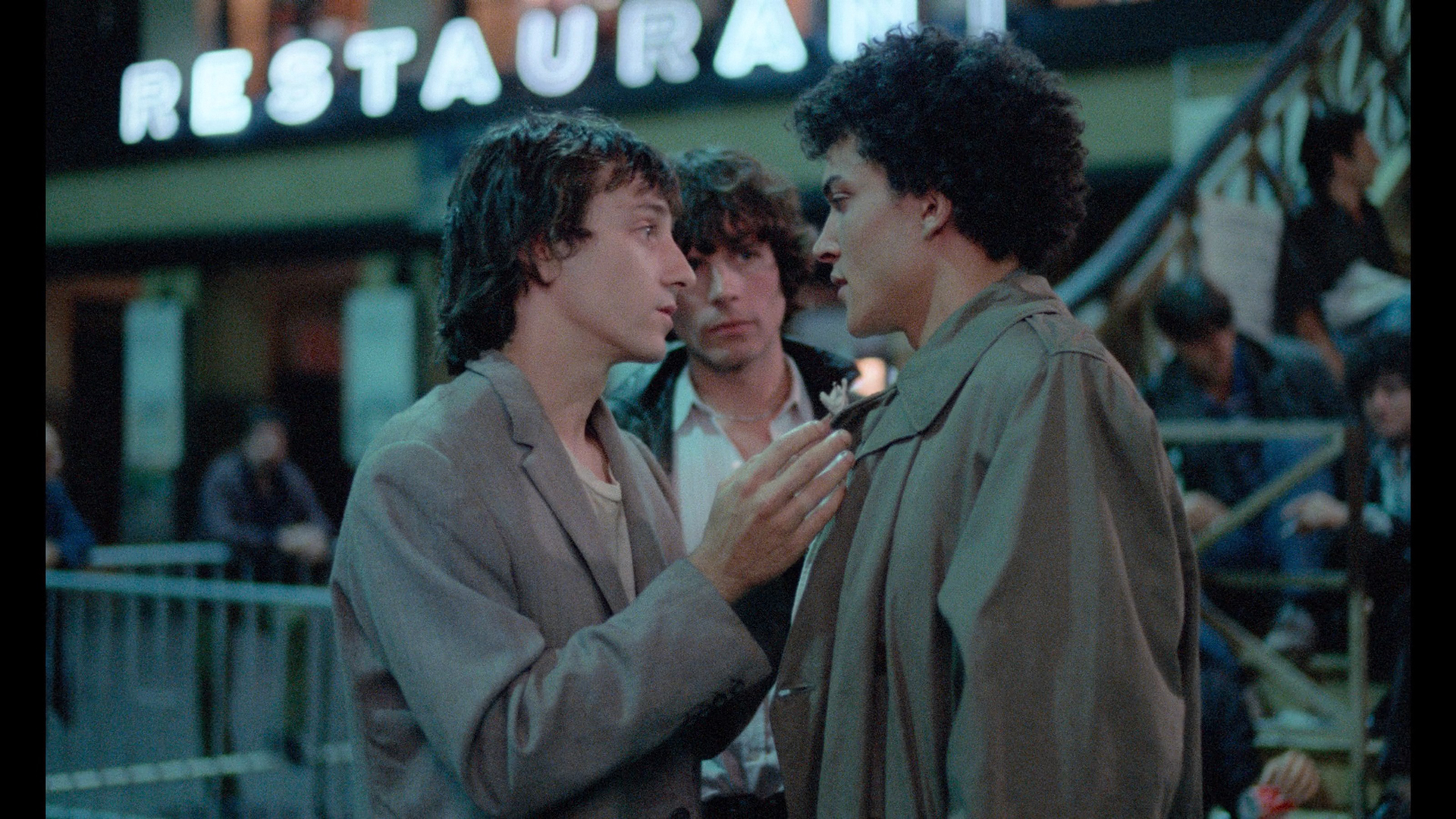 robbery, deception, and frustrated desire.
robbery, deception, and frustrated desire.
Though it's primarily a showcase for the young Anglade in an early breakout role, The Wounded Man sports a wild cast including future Oscar nominee Armin Mueller-Stahl (Shine), director Claude Berri (as a particularly odd john), Wim Wenders regular Lisa Kreuzer as Jean's roommate and sometimes bedmate, and even a quick appearance by Denis Lavant (Holy Motors). Given the film's reputation, first-time viewers might be surprised that it doesn't feature any sex scenes in the traditional sense -- though there are a couple of really unabashed moments from the leads and the most weirdly explicit instance of thumb sucking in movie history. Chereau shoots the film in a very drab, gritty style befitting the subject matter, with everything from the station to a wealthy household looking damaged and sinister.
Given a U.S. theatrical run on the art house circuit in 1985, Chereau's film was released under its French title on VHS by fascinating art-queer label Cinevista who promoted it heavily at the same time as In a Glass Cage and their early Pedro Almodóvar hits like Matador. The slightly letterboxed presentation with burned-in English subtitles was watchable but obviously heavily compromised at the time with the darker scenes completely turning to mud, while a 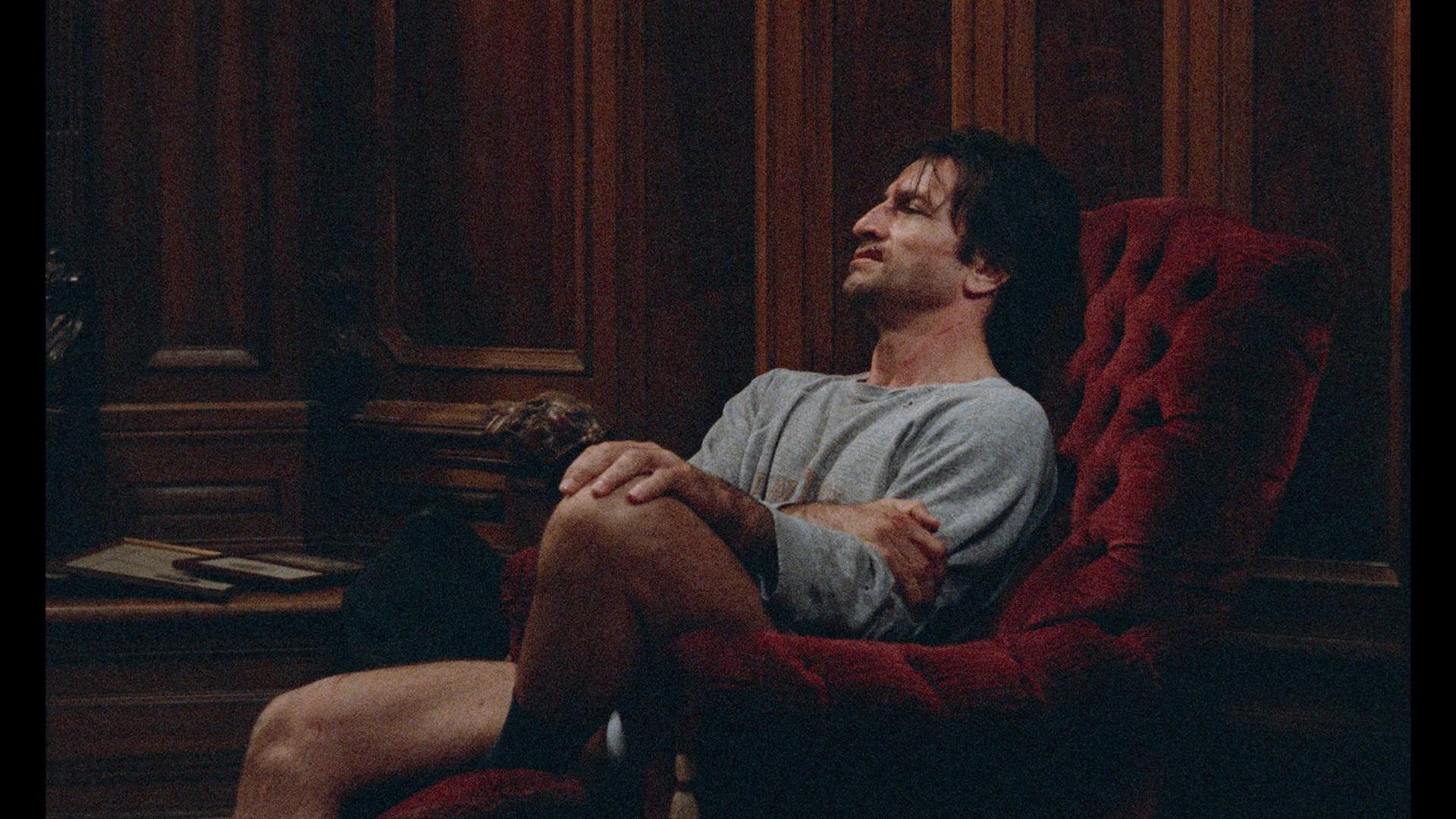 better version turned up on DVD in France but had no subtitle options. The Blu-ray is a big improvement across the board, featuring a restoration provided by
better version turned up on DVD in France but had no subtitle options. The Blu-ray is a big improvement across the board, featuring a restoration provided by 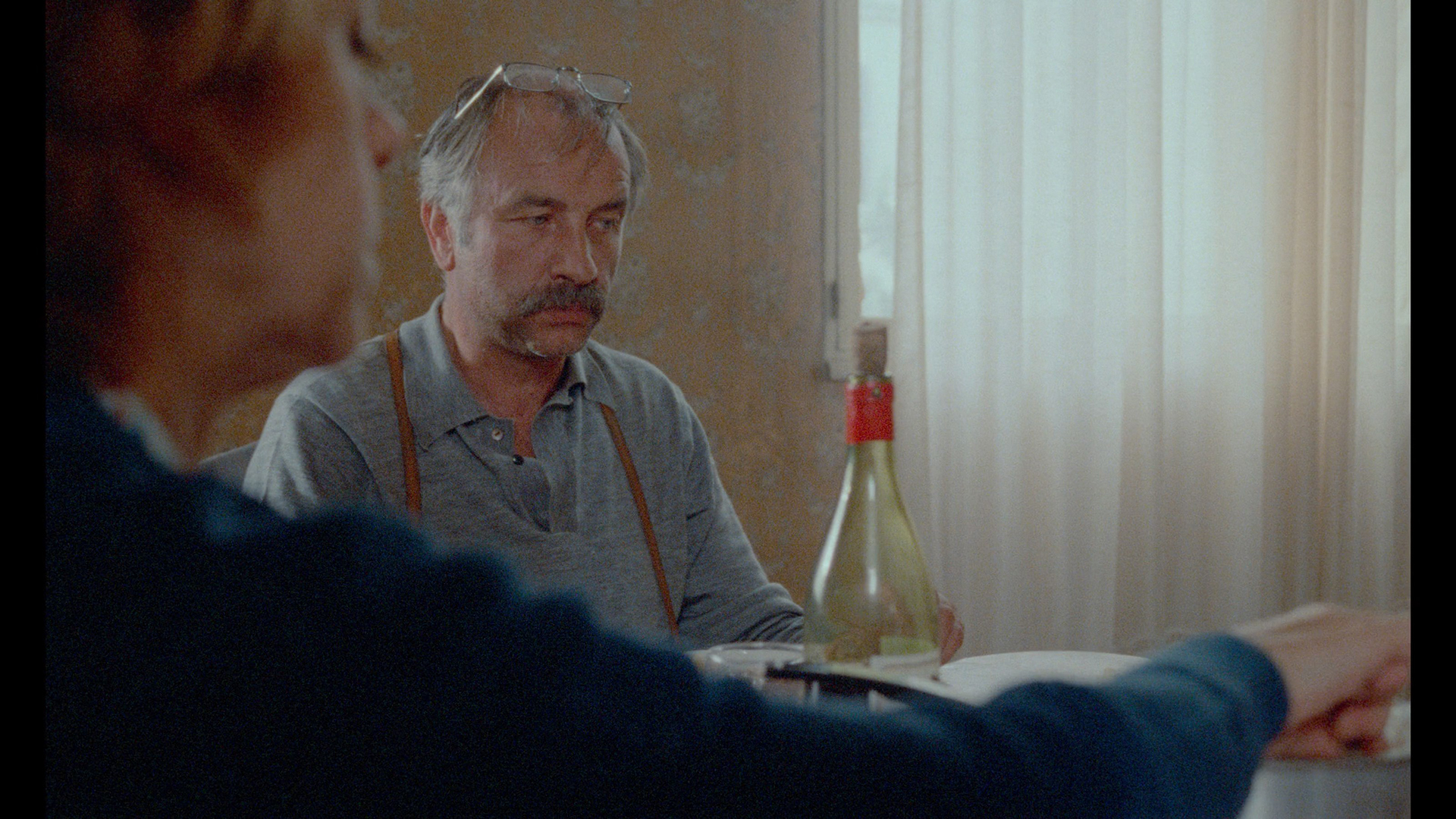 Studiocanal that's far more legible than prior editions while retaining the grainy texture of the original production. The DTS-HD MA French 2.0 mono track is also in great shape and features optional English subtitles. The video extras start with "The Wounded Man and the Paradox of Queer Visibility" (16m41s), a video essay by Robert Payne that covers the controversy the film generated upon its release, the early days of AIDS at the same time, connected queer-themed French films before and after this one, Chereau's status at the time as a renowned opera director, and the traditional depictions of homosexuality rejected by this film in favor of a tragic coming-of-age story. In the second video essay, "Out of the Shadows: Criminalization of Sex Work in L'homme blessé" (22m58s), Tom Boye explores how his own experience with sex work mirrors the depictions in this film, how the mixture of shame and transgression functions in a complex lifestyle especially for those going through the process of growing up, and what a difference decriminalization makes across the board. Also included are the new restoration trailer and bonus trailers (Irreversible, Dressed in Blue, Wild Reeds, and Arrebato), while the insert booklet features an intro by Hedi El Kholti of Semiotext(e), a newly translated "The Red Heels" piece about the film by by co-writer Hervé Guibert, "The Wounded Man" story by Abdellah Taïa, and a text conversation between Wayne Koestenbaum and Bruce Hainley about the film.
Studiocanal that's far more legible than prior editions while retaining the grainy texture of the original production. The DTS-HD MA French 2.0 mono track is also in great shape and features optional English subtitles. The video extras start with "The Wounded Man and the Paradox of Queer Visibility" (16m41s), a video essay by Robert Payne that covers the controversy the film generated upon its release, the early days of AIDS at the same time, connected queer-themed French films before and after this one, Chereau's status at the time as a renowned opera director, and the traditional depictions of homosexuality rejected by this film in favor of a tragic coming-of-age story. In the second video essay, "Out of the Shadows: Criminalization of Sex Work in L'homme blessé" (22m58s), Tom Boye explores how his own experience with sex work mirrors the depictions in this film, how the mixture of shame and transgression functions in a complex lifestyle especially for those going through the process of growing up, and what a difference decriminalization makes across the board. Also included are the new restoration trailer and bonus trailers (Irreversible, Dressed in Blue, Wild Reeds, and Arrebato), while the insert booklet features an intro by Hedi El Kholti of Semiotext(e), a newly translated "The Red Heels" piece about the film by by co-writer Hervé Guibert, "The Wounded Man" story by Abdellah Taïa, and a text conversation between Wayne Koestenbaum and Bruce Hainley about the film.
Reviewed on April 20, 2023



 internationally as the director of Queen Margot and the notorious Intimacy (as well as for
internationally as the director of Queen Margot and the notorious Intimacy (as well as for  his landmark staging of operas like Wagner's Ring Cycle), filmmaker Patrice Chereau was already stirring up controversy early in his career with his third feature film, L'homme blessé (or The Wounded Man). Mixing sexual obsession with a gritty depiction of street hustling in France, the film came along in the wake of envelope-pushing European provocations like Querelle and Taxi Zum Klo, generating much local chatter for depicting a lifestyle normally not shown so frankly in a mainstream prestige release. Since then the film has solidified its status as one of Chereau's most important films as well as a key entry in the darker vein of '80s gay cinema, and its much-needed restoration and resurgence in 2023 from Altered Innocence on Blu-ray should continue to provide an eye-opening experience for newcomers.
his landmark staging of operas like Wagner's Ring Cycle), filmmaker Patrice Chereau was already stirring up controversy early in his career with his third feature film, L'homme blessé (or The Wounded Man). Mixing sexual obsession with a gritty depiction of street hustling in France, the film came along in the wake of envelope-pushing European provocations like Querelle and Taxi Zum Klo, generating much local chatter for depicting a lifestyle normally not shown so frankly in a mainstream prestige release. Since then the film has solidified its status as one of Chereau's most important films as well as a key entry in the darker vein of '80s gay cinema, and its much-needed restoration and resurgence in 2023 from Altered Innocence on Blu-ray should continue to provide an eye-opening experience for newcomers.  keeps returning to the station until he ends up tracking down Jean, leading to a plunge into the world of prostitution,
keeps returning to the station until he ends up tracking down Jean, leading to a plunge into the world of prostitution,  robbery, deception, and frustrated desire.
robbery, deception, and frustrated desire.  better version turned up on DVD in France but had no subtitle options. The Blu-ray is a big improvement across the board, featuring a restoration provided by
better version turned up on DVD in France but had no subtitle options. The Blu-ray is a big improvement across the board, featuring a restoration provided by  Studiocanal that's far more legible than prior editions while retaining the grainy texture of the original production. The DTS-HD MA French 2.0 mono track is also in great shape and features optional English subtitles. The video extras start with "
Studiocanal that's far more legible than prior editions while retaining the grainy texture of the original production. The DTS-HD MA French 2.0 mono track is also in great shape and features optional English subtitles. The video extras start with "